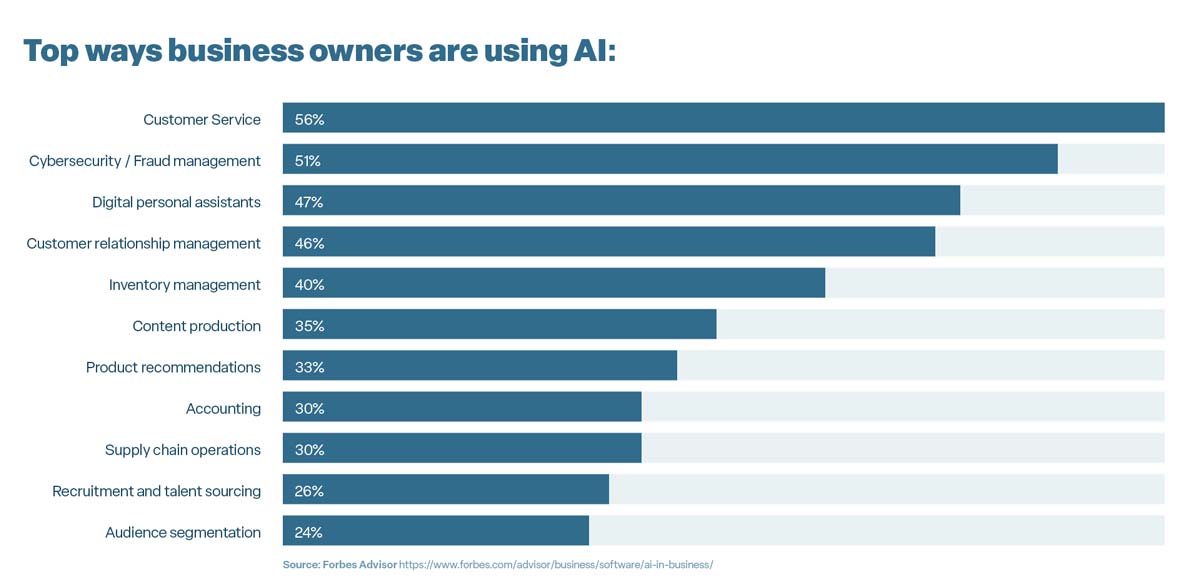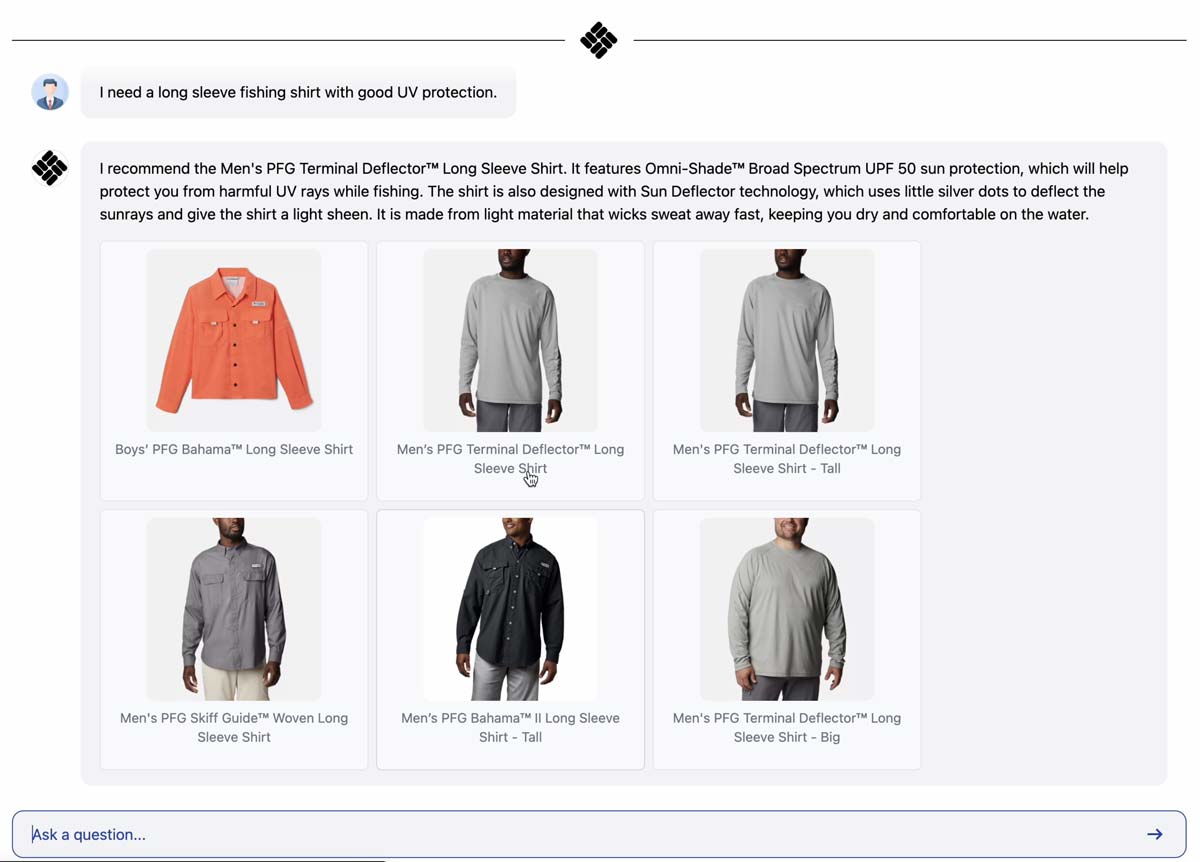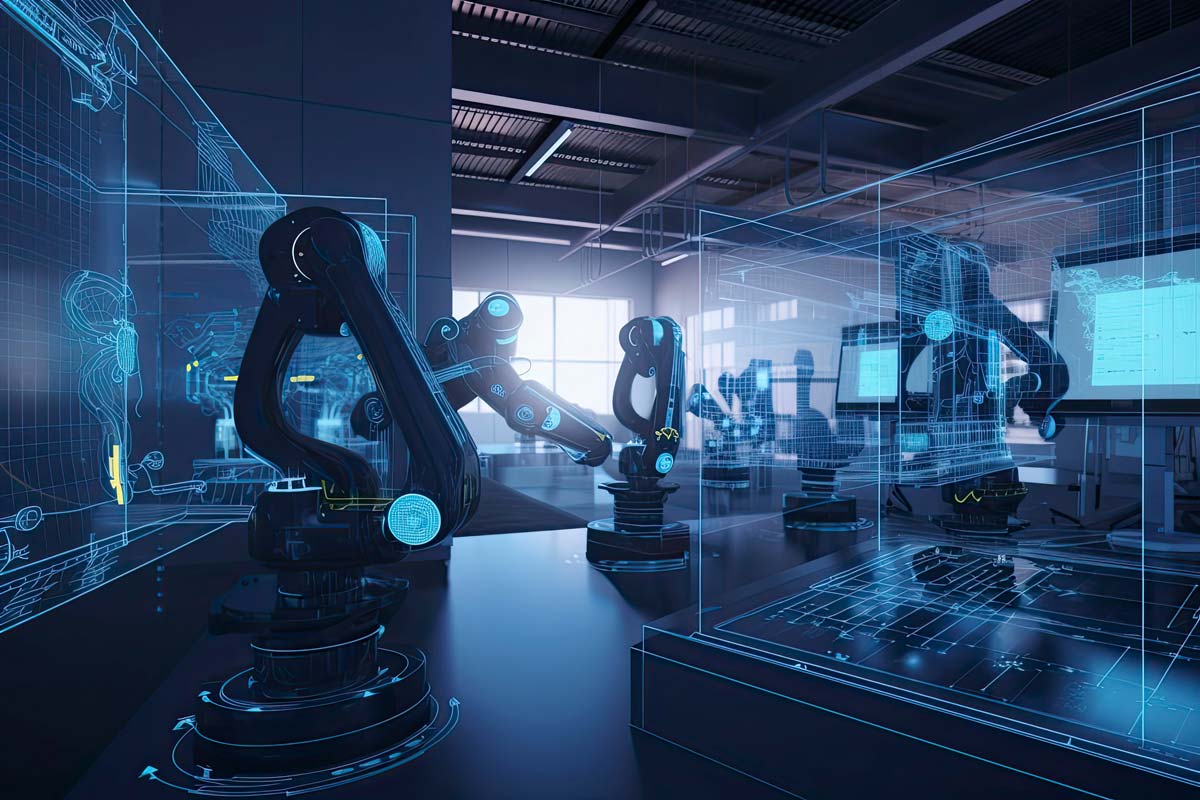
The Growing Adoption of Integrated AI—Top Business Applications for 2024
 Read Time: 12 minutes
Read Time: 12 minutesHow can your business take advantage of AI to stay competitive in the marketplace—while still keeping your data private and secure?
Not long ago, the mere mention of AI or artificial intelligence conjured up images of a dystopian future where intelligent machines plotted to overthrow humanity. But recently, tools like ChatGPT and Bing CoPilot have normalized AI, bringing it into the mainstream.
Today, AI presents a stark choice for businesses: embrace its potential to propel growth or risk being left behind by the competition. AI offers a range of practical benefits, including enhanced efficiency, improved decision-making, and personalized customer experiences.
According to a Forbes advisors survey, over half of business owners are currently using AI for various aspects of their business, including cybersecurity and fraud management. Nearly all business owners that were surveyed believe AI will help their businesses in everything from customer service and relationship management to supply chain operations.

This new reality should move every business leader to ask: Since over half of businesses are already using AI, where does that put my company in the marketplace? How can I securely leverage this powerful technology?
First, let’s look at some ways you can leverage integrated AI in your business in 2024.
Personalized Customer Services
According to Forbes, the foremost way businesses are currently applying integrated AI is in the customer service arena. A custom AI tool can personalize the customer service experience by analyzing customer data, purchase history, and browsing behavior. These tools can provide personalized product recommendations and tailored offers. They can be trained to analyze customer feedback (such as social media posts, reviews, and surveys) to better understand the overall customer sentiment and then identify areas for improvement.
Custom AI-powered systems can also deliver a consistent personalized customer experience across all channels that a business uses, such as their website, mobile app, social media platform, and email. AI-powered chatbots and virtual assistants can interact with customers in real time and in a consistent tone, providing them with personalized recommendations and instant support.
For one of our clients here at TSG, Columbia Sportswear, we built a demo of a virtual assistant for their ecommerce site. It can elicit popular questions or allow someone to input their own. A customer can, for example, narrow down their search for a long-sleeve fishing shirt with UV protection.

After a few short questions, the customer can click through to the site and make a purchase, rather than digging through menu trees and scrolling through products.
It’s clear the value that a tool like this can bring to a customer’s experience. And yes, all of this can be done in a secure environment, protecting the sensitive information of your business and your customers.
AI-Enabled Innovations
Businesses are also leveraging AI’s capabilities to innovate and create novel products and services. By utilizing customer data, market trends, and consumer preferences, AI-powered systems can generate innovative product ideas and identify patterns and insights that humans might easily overlook. AI-powered algorithms can create and evaluate different design options, quickly developing new prototypes. Moreover, AI’s ability can also help improve the quality of products and services by identifying defects, errors, or anomalies in the manufacturing process.
In short, AI can help augment and enhance the unique creativity of the human mind by leveraging vast amounts of relevant data and making it available to humans in a way that they can apply meaningfully.
Tailored Learning and Training
Another way businesses are using AI is to enhance the learning and training experience for employees.
One challenge companies face is that individuals learn differently. There's no effective one-size-fits-all approach. AI can help by creating tailored prescriptive training. It can analyze the skills, knowledge, and learning preferences of each employee. That data can then be used to create a personalized training path, ensuring that employees receive the most relevant and effective training for them.
Custom training systems that have been integrated with AI can recommend training content based on the employee's job role, their performance, their learning history, market trends, even company goals.
Adaptive learning systems can adjust the difficulty of the training based on an employee's progress, ensuring that the training material remains challenging but not overwhelming. Employee performance can be automatically assessed through quizzes and assignments that provide immediate feedback and suggestions for improvement. These private AI tools can also track KPIs and provide insights into how training is impacting performance, helping businesses to measure the ROI of their training programs.
With an AI-powered learning management system, the savings from improved employee onboarding, retention, engagement and performance can’t be overstated—not to mention the reduction of waste from ineffective training methods. No doubt the improved training could also reduce risk for the company. Here at TSG we have been working with a global auto manufacturer on the use of AI for their internal learning system. You can read more about the methods and approaches we took here.
Automating “Grind Work”
Many companies are using AI to automate “grind work”—those repetitive, time-consuming tasks that are an unfortunate part of each business day.
You might be surprised just how much of an average workload can be outsourced to AI-integrated systems: data entry and processing, content generation, content moderation, inventory management, supply chain optimization, pricing, data analytics, reporting, financial and accounting tasks, HR functions and legal document review, just to name a few!

Real-time Performance Enhancement
AI can often do grind work more efficiently than a human, but how can it empower the irreplaceable aspects of human work?
One way is through real time performance enhancement. For example, imagine an employee makes a mistake entering data that can't be automated. Custom software monitoring tools that employ AI can monitor their activity in real time, catch the mistake, and alert the employee. Such tools can track how frequently errors occur, and then curate training to address those trends.
These tools act like coaches working with each person on the team to offer real-time feedback that enhances their skills and takes the whole team to the next level. They can also help ensure compliance, safety, and productivity in real time as well.
Accessing and Organizing Information
Generative AI helps to organize and summarize vast amounts of information.
Imagine a technician who needs quick access to very specific technical data or a sales rep who needs to know a list of features for a particular product. If the answer lies somewhere in an enormous sea of PDFs that are housed on a server, it would take a very knowledgeable and incredibly patient employee (with time to spare) to dig it out.
On the other hand, an AI-powered system could do it in seconds. “Chatting with your documents" enables employees to obtain quick answers to specific questions and access links to the source material for further reference.
Private AI tools can empower financial decision-making by analyzing vast amounts of data and providing insights into potential risks, emerging trends, promising opportunities, and auditing compliance, leading to more informed choices.
Unstructured data (such as internal company documents, emails, web pages, slide decks, engagement center phone calls, social media content, images, and videos) represents a vast and largely untapped resource. This type of data, which differs from the structured data your company might be more familiar with (like database records, spreadsheets, and financial records), accounts for an estimated 80-90% of all new enterprise data and is growing at a significantly faster rate.

AI services can help to extract valuable metadata from all these currently underutilized sources so that you can gain greater insights and make better decisions. And yes, it can do it without compromising the privacy and security of your information.
While AI empowers workers to access knowledge efficiently, human oversight is crucial. This is especially critical when it comes to leveraging AI with proprietary company information. Doing this the right way is vital to ensuring data privacy and security and maintaining consumer confidence.
Workforce Optimization
AI can optimize a company's workforce by generating employee schedules, setting production prices, and making real-time adjustments based on data analysis. It can analyze historical data, market trends, availability of the workforce, individual skills, labor laws, and customer demand. Using these and other data points, it can create an optimized worker schedule. It can even make continuous adjustments in real time.
Similar algorithms can analyze market conditions to provide real time pricing. Manufacturers can use it for precise quality control, and it can enhance safety in industries where it matters most.
Don’t Get Left Behind in 2024
As we can see, integrating AI into custom systems is transforming the business landscape in many ways. Its applications are diverse, spanning industries and functions within those industries. Embracing AI can lead to increased efficiency, innovation, and competitive advantage; when done responsibly, this is accomplished without compromising your intellectual property.
If done right, you can maintain data privacy, but you have to know what you’re getting into, and who you’re getting into it with. Our next article in this series will explain exactly how private AI solutions work, and how to keep them secure.
On November 8, 2023, our live webinar explored the power of integrating AI into your company's systems and demonstrated how AI can be customized to meet your specific needs while safeguarding the privacy of your proprietary information. This article is a review of the first part of that webinar.

We are custom software experts that solve.
From growth-stage startups to large corporations, our talented team of experts create lasting results for even the toughest business problems by identifying root issues and strategizing practical solutions. We don’t just build—we build the optimal solution.
From growth-stage startups to large corporations, our talented team of experts create lasting results for even the toughest business problems by identifying root issues and strategizing practical solutions. We don’t just build—we build the optimal solution.


